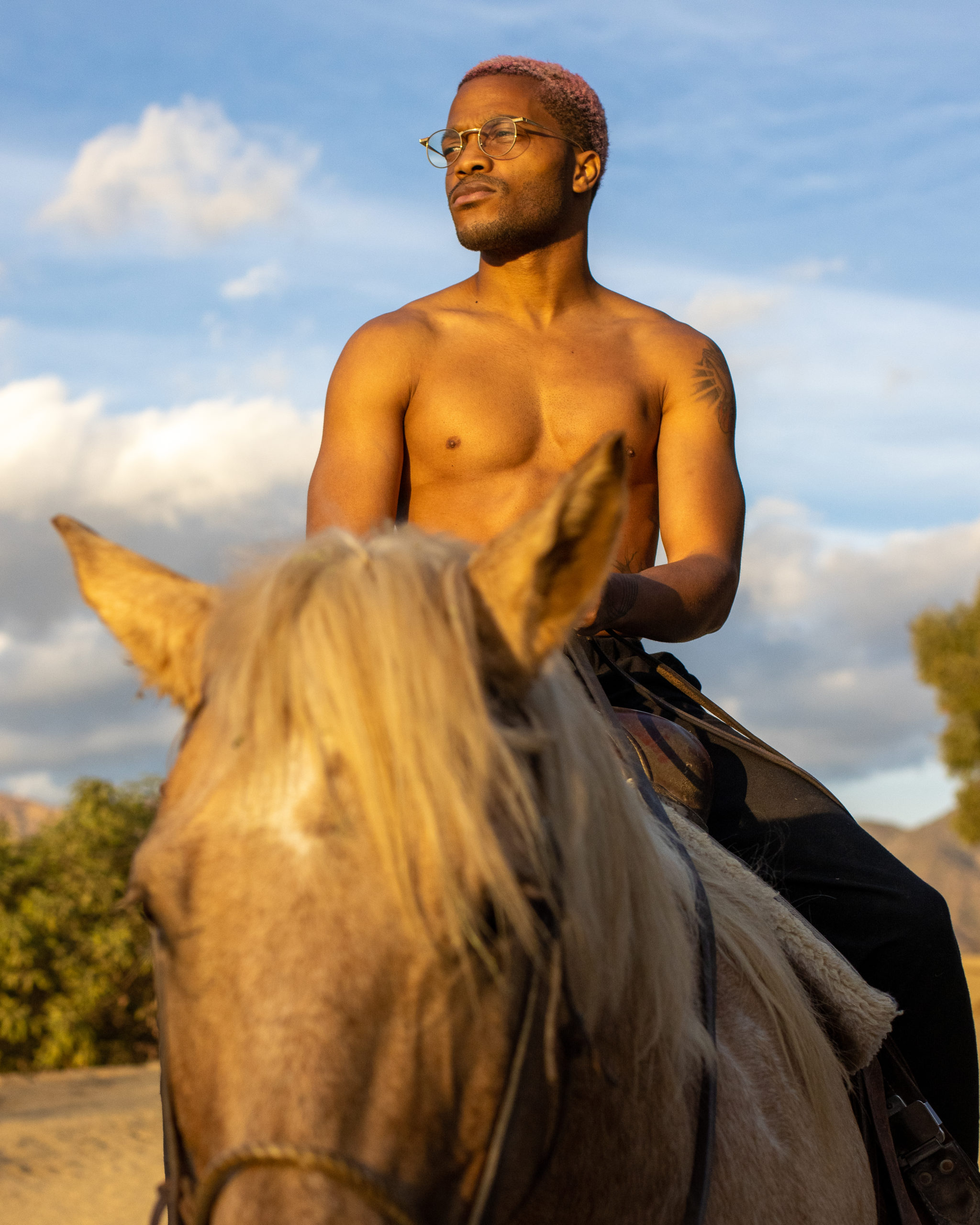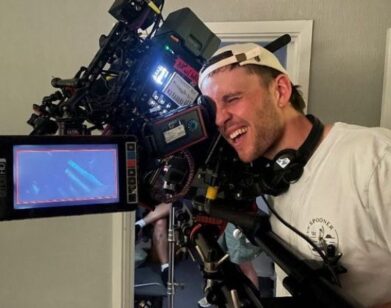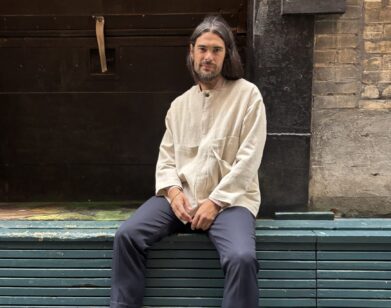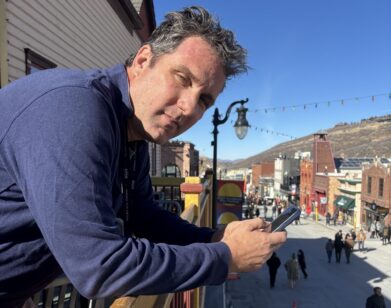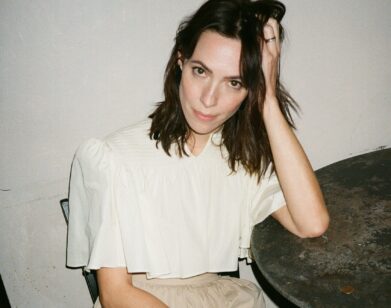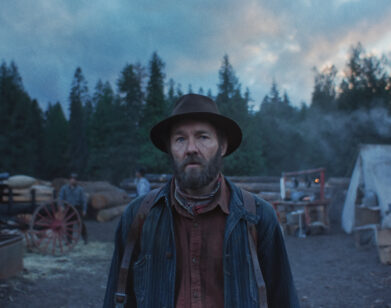IN CONVERSATION
Jermaine Fowler Tells Whoopi Goldberg Why Coming 2 America Is a Full-Circle Moment
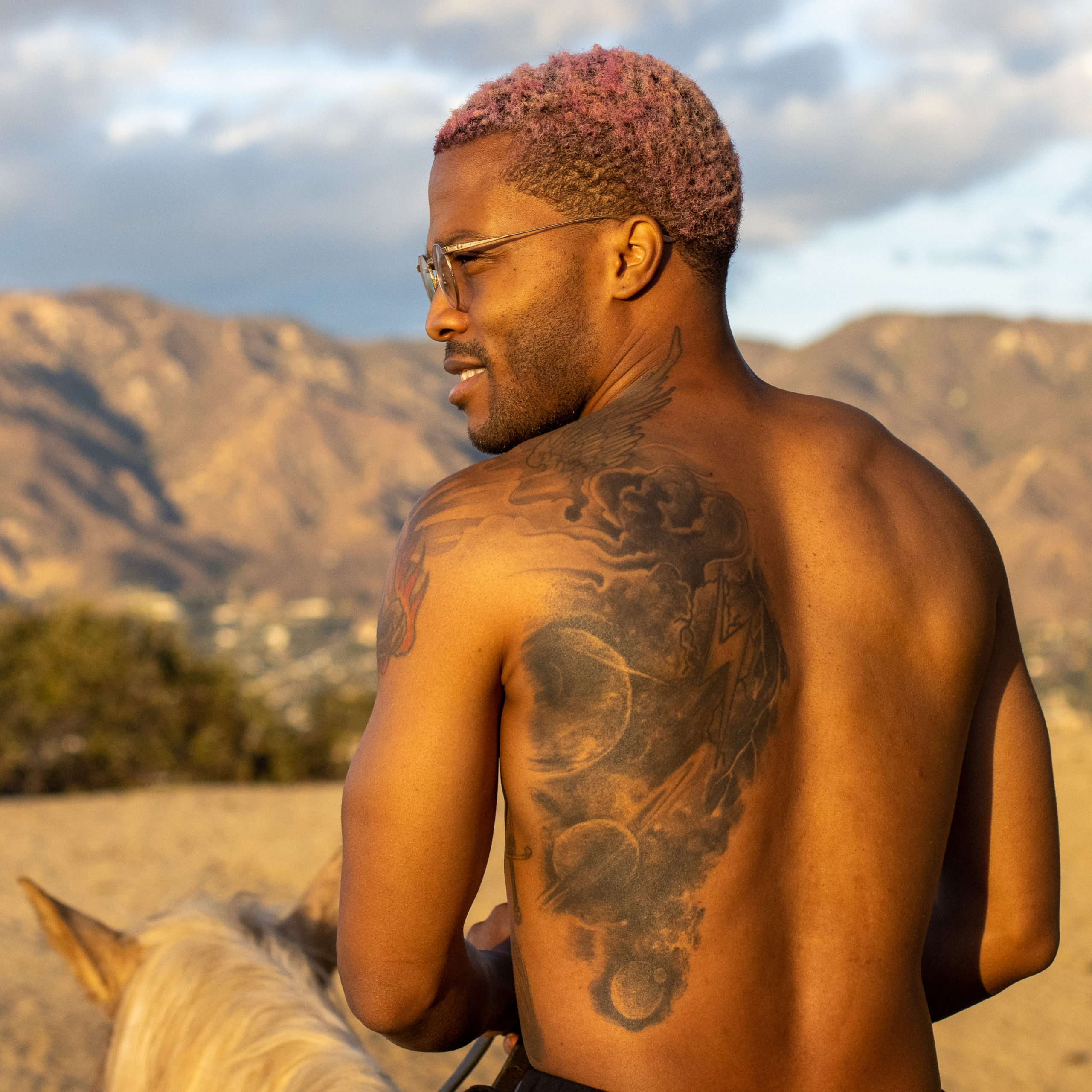
They say, “Never meet your heroes,” but Jermaine Fowler might beg to differ. The 32-year-old actor and comedian became enamored with standup comedy when he watched a VHS tape of Eddie Murphy Raw, and eventually moved from Maryland to New York city to give it a shot himself. It wasn’t long before he began touring across the country, while building a reputation for himself in the sketch comedy world. Like Murphy, he wanted to parlay his standup skills into an acting career, a pivot that came into full bloom when Fowler starred in the short-lived but much-loved CBS sitcom Superior Donuts. From there, he starred opposite LaKeith Stanfield cult hit Sorry to Bother You and returned to a fictionalized version of the stand-up grind as a struggling comedian in the HBO series Crashing. Next month, his career comes full circle when he’ll appear as Eddie Murphy’s onscreen son in the highly-anticipated sequel Coming 2 America, an experience that, as he tells his friend Whoopi Goldberg, felt something like a dream.
———
WHOOPI GOLDBERG: How are you doing, baby?
JERMAINE FOWLER: I’m alright, how you been?
GOLDBERG: Still Black, still here.
FOWLER: I like to hear that.
GOLDBERG: What’s going on?
FOWLER: I’ve got two kids now.
GOLDBERG: Oh, shit!
FOWLER: I have one girl. She was the first one, born when I was shooting Sorry to Bother You. I was shooting with Steven [Yeun] and LaKeith [Stanfield], and we all had our first kids around the same time. I had my second kid in March of last year, right before the pandemic. I call him my apocalypse baby, because this is all he knows.
GOLDBERG: Inside with mommy and daddy.
FOWLER: Yeah. And I’ve been writing and developing my own stuff. It’s the perfect time to just relax and type.
GOLDBERG: With no pressure.
FOWLER: Yes. The things I’ve always wanted to do are finally starting to come together. But along the way, I want to make sure when I get to those goals, that my personal growth is ready for those things. My responsibility is to make sure I’m ready for the things I’ve always wanted. It takes a lot of reevaluation, looking back, and trying to understand who I am, and where I come from. It’s been a lot that during quarantine. And a lot of it before, but I don’t have work to distract me. I can’t just go to work and sweep it under a rug. I’ve got to face those issues right now, and it’s been great. I just found out I have a long-lost sister.
GOLDBERG: Wow.
FOWLER: I got a phone call from an adoption agency, and they said, “Are you familiar with a possible sibling that might have been put up for adoption when you were a kid?” And I said, “Before my mom passed away, she did bring it up.”
GOLDBERG: It would have happened whether you were you looking for her or not. This is the thing: Blood finds blood.
FOWLER: I met her, and I did it illegally, apparently, because I’m supposed to wait for the state to grant me permission to meet her, because I guess in the past, a lot of people have been scammed. But she is my blood sister, and I couldn’t wait. So we were writing letters back and forth, and in doing so, I followed a lot of clues I think she was trying to give me. Along the way, I thought I found her, and it wasn’t her. I thought I found her again, and it wasn’t her. But then I finally found her and she is the coolest person ever. For a long time I thought I was adopted, because I was just so different from my siblings. She felt the same way about her family. She’s an artist as well and we’re the only two artists in the family. We were just kind of vibing off of that, and I was like, “Yo! I’ve been looking for you my entire life!”
GOLDBERG: You’re like twins.
FOWLER: It’s true! It’s funny because I do have a twin. This kind of comes back to what we were saying earlier about being ready for those things. Her family told her when she was seven that she was put up for adoption. She knew that, but it took her a while to muster up the courage to finally contact us. And when she finally did, I had to break the news that her mom passed away. She felt a certain way about that. I was like, “Don’t feel that way, because we might have been different people back then, and we might not have been ready to meet you. I don’t know how to explain that, but we’re meeting at the right time right now for a reason.” I needed to meet her when I needed to meet her. And I’m glad I did.
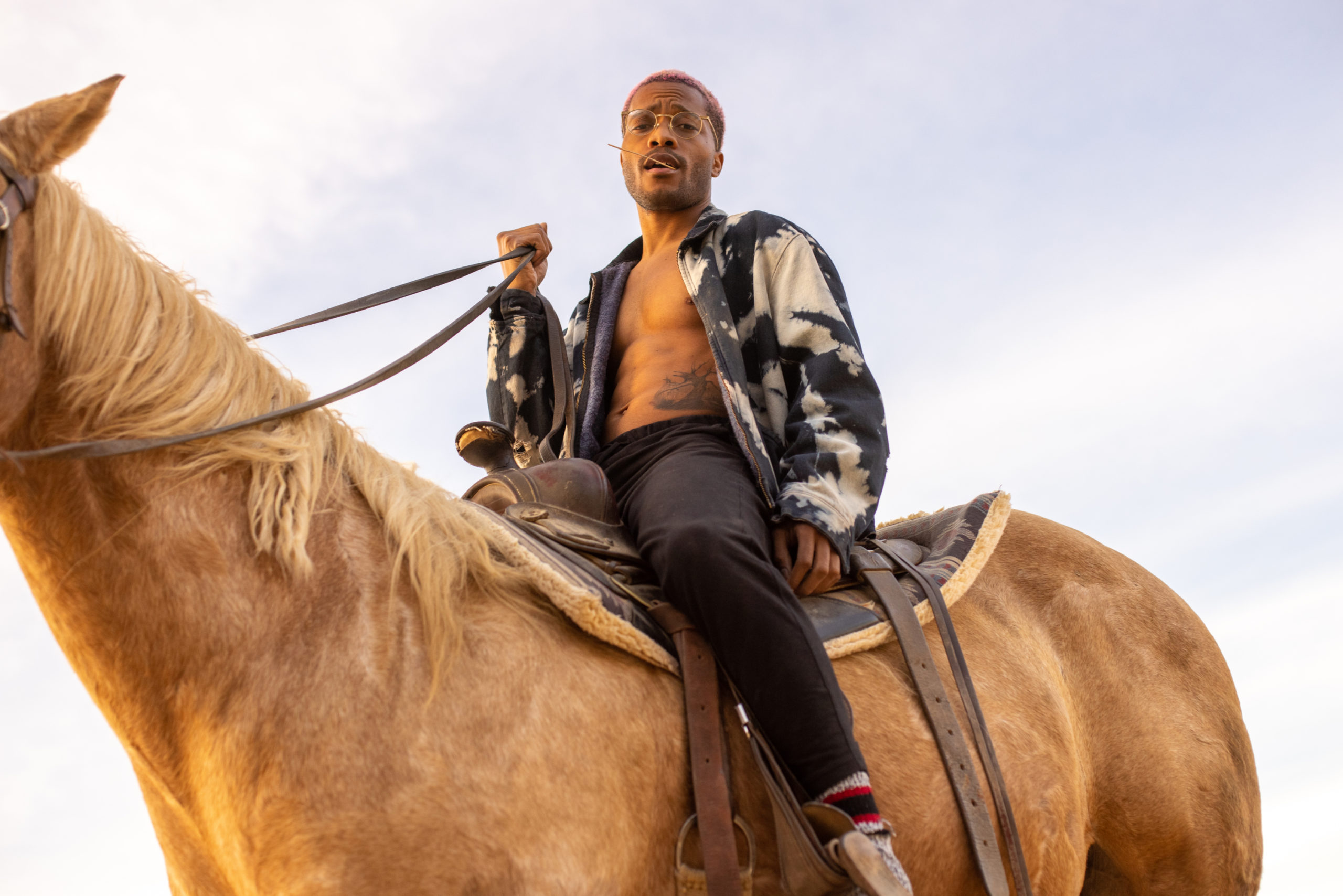
GOLDBERG: How’s the rest of the family with that?
FOWLER: I don’t care who you are, but every sibling has a different relationship with their parents. Everybody remembers their parents differently than other people. And it’s great for her, because she gets to hear different perspectives about who my mom was, and how great she was, and how funny she was. I’m glad I have three other siblings to tell her what life was like growing up for us.
GOLDBERG: Do you think that the pandemic has forced you, as an artist, to be still in order to absorb everything that you need to absorb in the world? One of the upsides of this pandemic is there’s nothing to hide behind. You’re not hiding behind work. You’re not hiding behind anything. You’re right there. And so you have to look over and say, “Hey, husband, wife, whatever, put down the phone because kids are trying to talk to us.”
FOWLER: That’s exactly how I feel. Before all this I was always on social media, distracted by whatever was out there. Now that I’m home, it’s put everything in perspective, and put the most important things in front of me. Right now, what idiot would stay on Instagram? There’s no reason to.
GOLDBERG: There’s a lot of them. But your focus is different. Of the things that are important to you now, they are different than they were pre-pandemic, but for other people, they’re trying to find that thing that makes them worthwhile again. That’s not a problem you were having.
FOWLER: Hopefully, people do find what their purpose is. I think people are being forced to, once again, figure it all out, and reevaluate. I hope people take this time to do that. Because what was all this for, if it wasn’t that? It’s easy to sit around and panic, but those feelings should be temporary. I think you want to be looking ahead, and thinking about the future. And being present is important, too. We’re going to remember this for the rest of our lives. You want to think about who you were when this happened. What did you do? What do you want to be remembered for during all this shit? That’s what I’ve been thinking about.
GOLDBERG: As an actor, what are the things you have grasped on to that surprised you?
FOWLER: I’m realizing what I really want to do. I got into this as a standup because I’ve always wanted to dip into acting. I’ve always admired Richard Pryor, you, Eddie Murphy, Martin Lawrence. Mount Rushmore. But I’ve found out that my standup has fed into my acting, and made it better. And now my acting has made my standup better. They marry each other so beautifully. Now, I want to do more dramatic roles. But beyond that, I want to find more flawed characters to portray. I want to dig deeper into what makes a human being a human being, that complexity. I want to really figure that out, and I want to portray people in stories that don’t necessarily get told, or that people are afraid to tell. I want to find those stories, and I want people to see them. However long it takes, I’m willing to put that work in.
GOLDBERG: Are you telling stories?
FOWLER: I write them every day. My therapist was telling me something very awesome. He said, “It’s great that you’re writing things, and there’s a natural defense that we have as Black people, like, ‘I’ve got to write my own shit, because ain’t anybody going to write that shit for me.'” That’s just the way a lot of Black creators create.
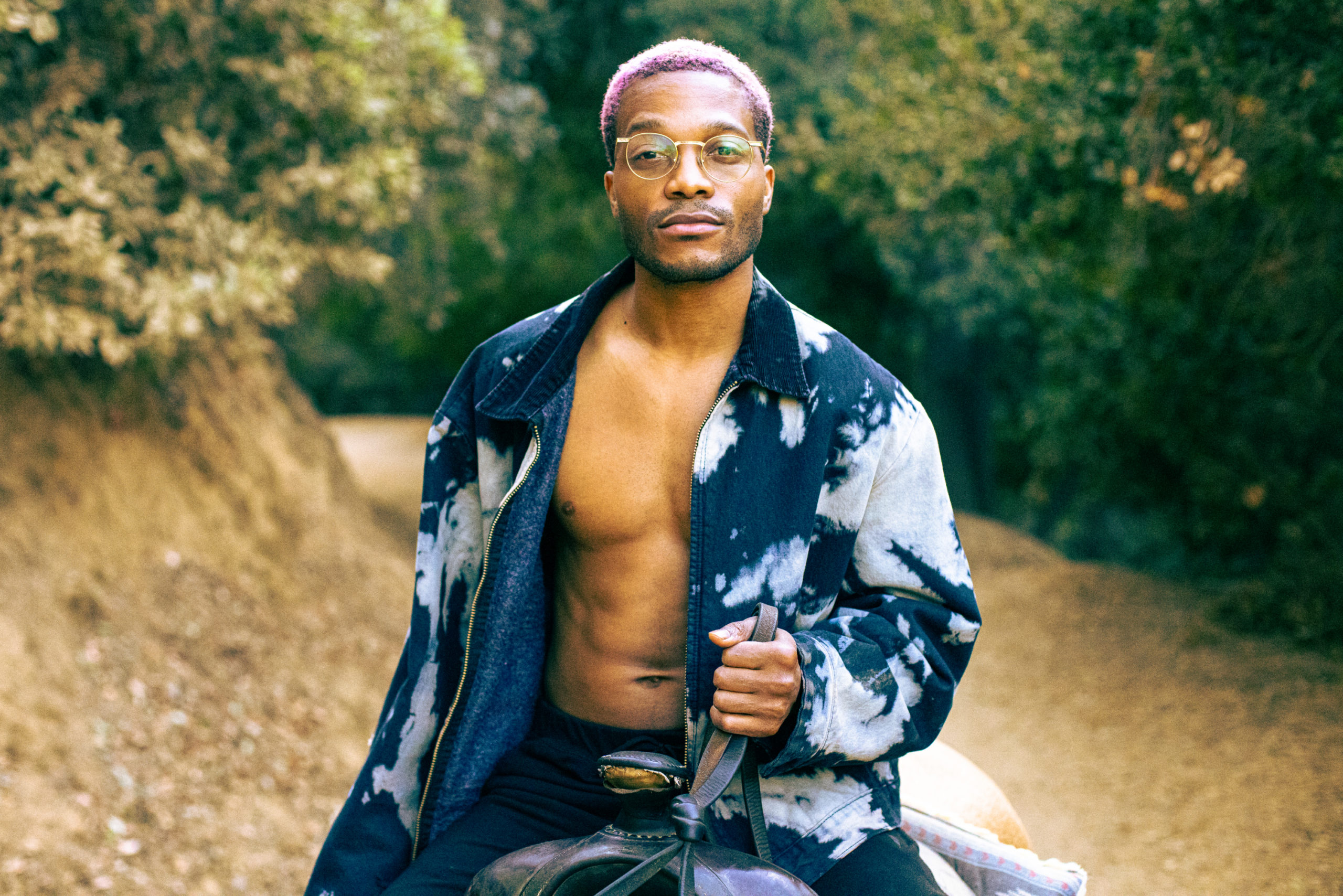
GOLDBERG: It certainly is. What was it like working with Eddie and how did it happen?
FOWLER: I got into standup because my neighbor gave me a VHS copy of Eddie Murphy Raw. I watched it three times that day. Years later, I met an executive at New Line. His name is Sam Greenberg, and so he told me, “Hey, there’s a writer you should meet named Miles Murphy.” And I was like, “Okay, sure. I’ll meet Miles Murphy.” And he’s like, “By the way, he’s Eddie’s son.” So me and Miles started chatting, and one day, he was like, “Hey, you want to come over and watch the fight?” He gave me the address, and I’m driving up this big-ass hill. And I’m like, “Miles lives in the Hills?” I thought he’d probably live in Hollywood or something like that. I get to this big old gate off Mulholland Drive, and I’m like, “Oh, this ain’t Miles’s house. This is Eddie’s house.” So I get to this estate, and Miles takes me inside, and gives me a tour of the house. His whole family was there, and I heard somebody playing piano in one of the areas in the dining room, and it’s Eddie. So we eventually started talking about standup, about Richard Pryor, about Muhammed Ali. He’s so smart. He’s into film history, loves Charlie Chaplin, Bruce Lee. The things that I like. Then one day, I get an email from my agent saying, “Hey, they’re doing auditions for Coming 2 America.” I was like, “Okay. Good for them. I’m happy they’re doing it, but who’s coming back?” And they were like “Eddie.” So I said, “Okay, I’m in!”
GOLDBERG: Who do you play?
FOWLER: I play a character named Lavelle Junson. I’m the long-lost son of Prince Akeem who finds out that he is the heir to the throne of Zamunda, and this is a guy who’s not really happy with his life. So, when he hears this news, he’s like, “Oh, hell yeah! I’m going to take advantage of all that.” And he does. It was such a privilege and an honor to be on set with Eddie, Arsenio…
GOLDBERG: The whole crew.
FOWLER: I mean, James Earl Jones came back. At first I was nervous. And then when I did the first audition, it felt like, “Yeah, I’m supposed to be here. Let’s rock.” The director, Craig Brewer, is an actor’s director, so he let us play as much as we wanted. There were scenes that I did with Eddie that were comedic, and there were some dramatic ones too. All of them felt really good. He brought back some classic characters, and some new ones I think people are going to love. It felt like a dream being there, for real.
GOLDBERG: How long was it before you decided it was okay for you to be there?
FOWLER: Day one. Right when I met Craig during the audition, I knew we were in good hands. It’s very easy for someone in my position to feel flustered and not taken seriously. Or like you’re the baby boy on set, so you feel like you can’t really spread your wings and be you. But I didn’t feel that at all. I felt welcomed. Also, it helped that I knew Eddie before.
GOLDBERG: You found yourself in the kingdom of Blackness. That’s what that was.
FOWLER: Yes.
GOLDBERG: And knowing that you’re supposed to be there. Not doubting it. What do you attribute the lack of doubt about your place in the world? Is it your kids gave you the gravitas?
FOWLER: Well one, I’ve been wanting to do this since I was 11. I think what attributes to me feeling comfortable is hunger. I’m just hungry. There were steps I had to take to get to those moments, and I took them. It was one of those things where I don’t ever feel like I was rushed to do certain things. Things happen when they’re supposed to happen, so when that happened? It felt good. I felt ready. I was allowed an opportunity, and I wasn’t going to just waste that away.
GOLDBERG: Right.
FOWLER: I grew up very humbly. We didn’t waste anything in our house. So I learned that very early and I just felt motivated and fueled by everything that’s happened to me in my life. Me and having kids, me going through the grief, and me just starting at Sorry to Bother You, even the project you and I did [the 2015 ABC pilot Delores & Jermaine]. Everything. It all happens when it happens.
GOLDBERG: So you’re feeling good? You’re feeling life has got much to offer?
FOWLER: It always does. Life wants to give you things. You’ve just got to be open to those offerings.
GOLDBERG: Right.
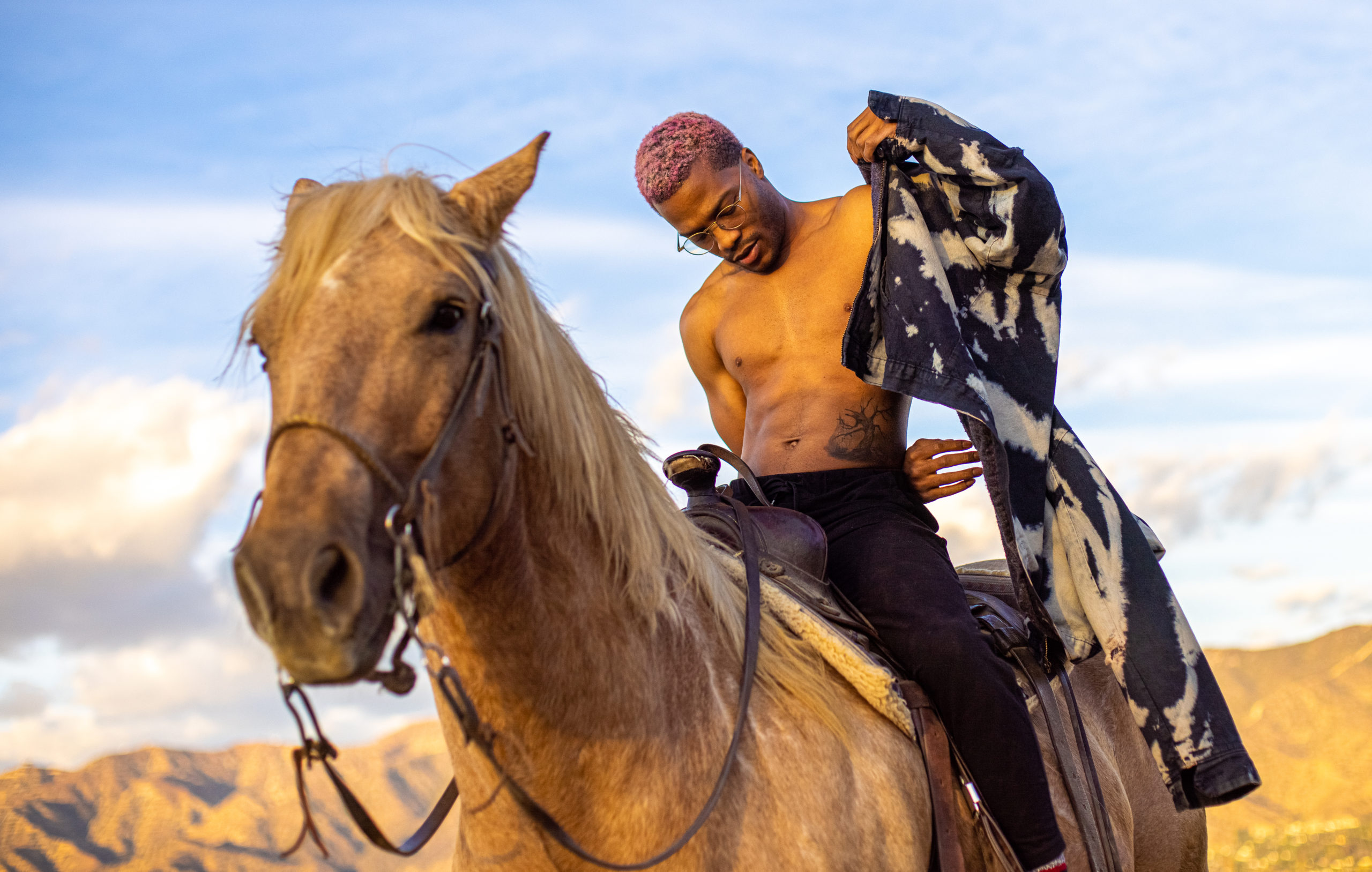
FOWLER: I’m just having a good time and enjoying the ride. I’m learning to be more present. There are a lot of times when people get things, and they’re like, “Alright, what’s next?” And it’s like, “No, enjoy yourself, man. Because this can go any day. Tomorrow, the next day, who knows?” Just be present. And give yourself a break.
GOLDBERG: I see very little fearfulness. You’re not looking for stuff to be afraid of. You’re looking for stuff to embrace.
FOWLER: It’s funny you say that. I think it’s both. I’m always open to challenges. I think fear is what drives a lot of us. I don’t like being comfortable. When I’ll see a role given to me, and they’ll be like, “Hey, they need you to play this type of character,” I’m like, “I’ve seen that done before. I don’t want to do that. I want to do what I haven’t seen done.” That curiosity is what breeds longevity.
GOLDBERG: What’s the immediate future like for you?
FOWLER: Spending time with the kids and raising them to the best of my ability. I always felt like personal growth is the thing that’s going to endear your art. You watch a lot of artists who don’t grow, and their art gets stagnant. Times change, and people change. You have to be a curator of your own art. And I want people to see me on an upward path. Not a stagnant one.
GOLDBERG: And what about standup?
FOWLER: I used to tell jokes from one perspective. When you get older, you start to understand other people’s perspectives. I feel like that’s where I’m at right now. I can tell a joke about how I grew up, but also, I can tell them what my mom was going through at that time. That’s what I love about Dave Chappelle. He can give you a full perspective on every character, and what they might be thinking. It makes everything feel like a full story. That’s how I’m feeling right now. I feel like I can connect with people.
